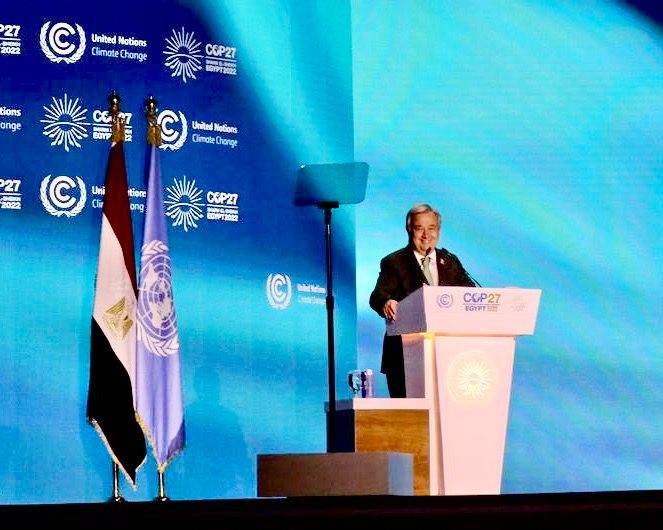United Nations Secretary-General António Guterres called for a "climate solidarity pact" among nations rich and poor to limit the Earth's overheating as negotiators from around the world got to work at a two-week summit in Egypt's Sharm el-Sheikh seaside resort.
"We are in the fight of our lives. And we are losing," Guterres told the 27th gathering of the Conference of the Parties to the United Nations Framework Convention on Climate Change, or COP27, on Monday. "It is the defining issue of our age. It is the central challenge of our century."








